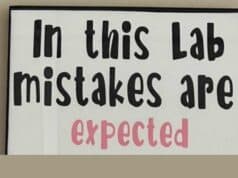Role of Management in a Lean Manufacturing Environment:
Rather than trying to add anything to his comments, read his own words here and in the linked article.
“Another common reason TPS implementations fail is that managers try to implement individual elements instead of the entire TPS approach. Since the elements of TPS are integrated and interdependent, any attempt to implement TPS only partially is bound to produce very unsatisfactory results.
For TPS to work effectively, it needs to be adopted in its entirety, not piecemeal. Each element of TPS will only fully blossom if grown in an environment that contains and nourishes the philosophies and managerial practices needed to support it. I liken this to a greenhouse, where just the right combination of soil, light, temperature, humidity, water and nutrients allow plants to grow and flourish. If any one of these elements is removed, the plants will weaken and eventually die.”
Please scroll down (or click) to post a comment. Connect with me on LinkedIn.
If you’re working to build a culture where people feel safe to speak up, solve problems, and improve every day, I’d be glad to help. Let’s talk about how to strengthen Psychological Safety and Continuous Improvement in your organization.









He is absolutely right, these views have also been expressed by Dr.Womack and Dr.Liker in their books. Unfortunately manufacturers like to view lean as a set of tools much like six sigma and pit these tools against each other! Lean is not a tool box it is a way, a dynamic that you set and abise by.
-antaeus
=======
Lean Researcher
Comments are closed.